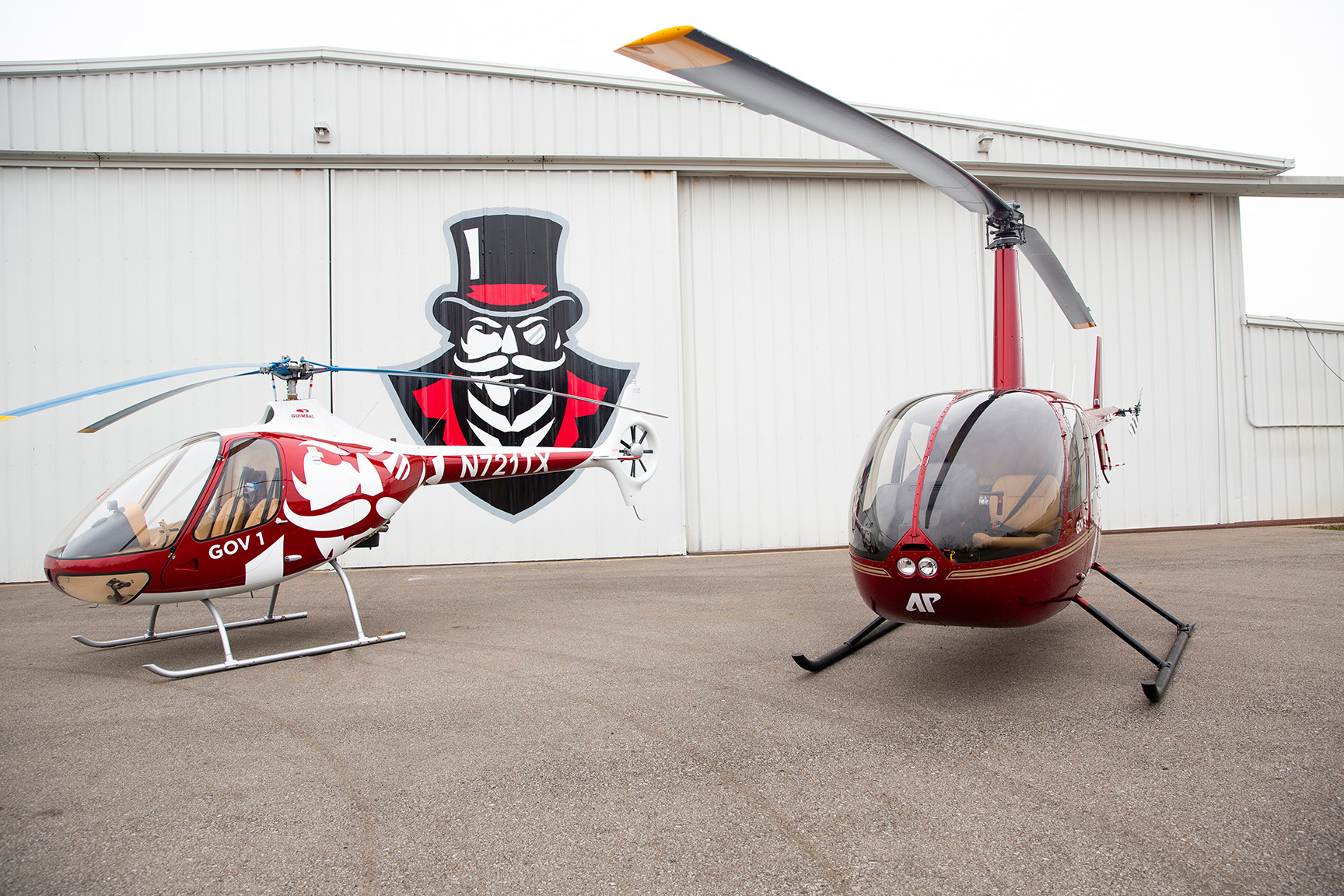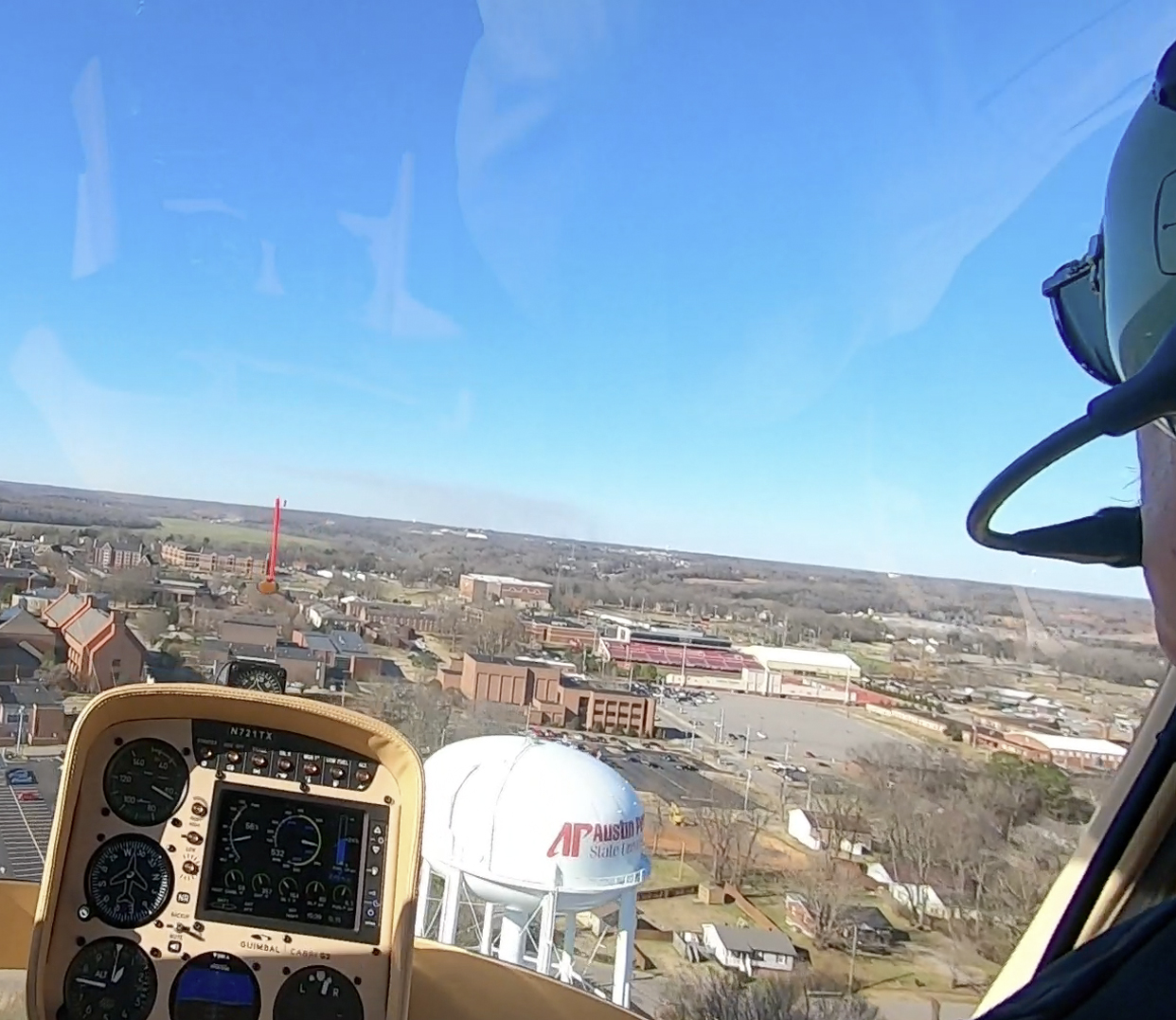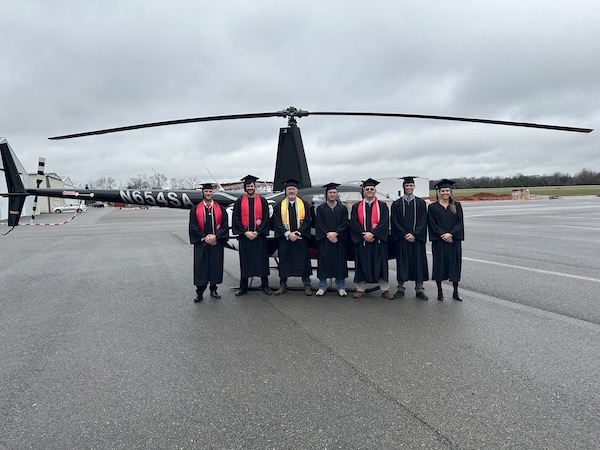
Why study Aviation Science: Concentration Rotor-Wing at APSU?
The APSU Bachelor of Science degree in Aviation Science, with a concentration in Rotor Wing (helicopters) is unique in the State of Tennessee. The bachelor’s degree will support any student who desires to pursue competitive careers in flight instruction, aerial tourism, charter operations, and numerous other aviation applications. Students are taught hands-on and academic skills in a professional setting and receive personal attention from their instructors. Flight skills and academics are taught at the Austin Peay Flight Facility at the Clarksville Regional Airport. Successful students will receive a well-rounded undergraduate education in addition to the ability to obtain FAA Commercial Pilot and Flight Instructor certification. The combination of FAA certification and Bachelor's degree makes graduates more competitive in the career market.
What are the requirements to enroll in the program?
The only requirement over and above the standard admissions requirements for APSU, is for the student to obtain a Second Class Medical Certificate from the Federal Aviation Administration (FAA). A searchable list of Aviation Medical Examiners may be found at AME Locator. There is also a weight restriction due to aircraft performance capabilities. Students flying the Guimbal G2 Cabri are limited to 280 lbs (ready to fly). Students flying the Robinson R44 are limited to 300 lbs (ready to fly). VA students falling in the 280-300 lb group would need to pay the difference per hour cost of the R44 themselves.
What will I learn?
The primary focus of the program is to provide the required academic knowledge and flight skills to earn a Commercial Pilot Certificate, Rotorcraft, Helicopter and Instrument rating. Students will also be provided the ability to earn a Flight Instructor Certificate, Rotorcraft, Helicopter, and Instrument rating. The Aviation academics will provide a foundation in FAA regulations, airmanship, rotary-wing aerodynamics, and methods of instruction which will provide students the opportunity to pass required FAA knowledge tests require for each certificate or rating. The Engineering Technology Core courses and elective courses round out the Bachelor degree requirements.
The Freshmen Seminar degree requirement completed by most students is UNIV 1000. The course is delivered in a small-class setting with like-minded students led by a faculty member and a peer leader. The interdisciplinary course is intended to support first-semester students and provide them with a foundation for university success. Emphasis is placed on student engagement, university learning success strategies, support services, library literacy, financial literacy, and academic and career planning. The first class meeting of UNIV 1000 during fall semesters is on Freshmen Convocation Day.
The general education core is designed to develop critical competencies in written communication, oral communication, mathematical analysis, and critical thinking skills. Students at APSU select coursework in the general education core in the areas of Communication, Humanities and Fine Arts, Social and Behavioral Sciences, History, Natural Sciences, and Mathematics. While the general education core requirements for graduation can be met by choosing courses from each of these areas, some programs of study require lower division courses that serve as prerequisites for upper division courses. Students should consult the sample 4-year plans and confer with their academic advisors as they choose their general education core courses.
What engagement opportunities are available to APSU students?
APSU fosters a positive campus environment that encourages active participation in university life.
APSU students engage in HIP curricular and co-curricular experiences that advance their learning and knowledge. Opportunities include first-year seminar, first-year learning communities, common reading experience 'The Peay Read', undergraduate research, study abroad, service and community-based learning, internships, e-portfolio development, and capstone courses & projects.
What Do Aviation Science: Concentration Rotor-Wing Majors Do After Graduation?
Some careers may require addition experience or courses such as Business or Management.
- Flight Instruction
- Charters
- Specialized Flying
- Offshore Petroleum Industry
- Business Aviation
- Aerial Tourism
- Air Medical Transport
- Airport or Flight Management
Program cost
This program is subject to all university tuition rates and other applicable fees. For a list of the current rates, visit the Student Account Services site here. This program is also subject to other fees including Flight Instructor lab fees and Flight Training Device fees.
LEARN MORE ABOUT PROGRAM COSTS HERE
APPROVED FOR VETERANS TRAINING
APPROVED FOR U.S. DEPARTMENT OF EDUCATION TITLE IV FUNDING

Join the first professional rotorcraft pilot and degree program in the state!
